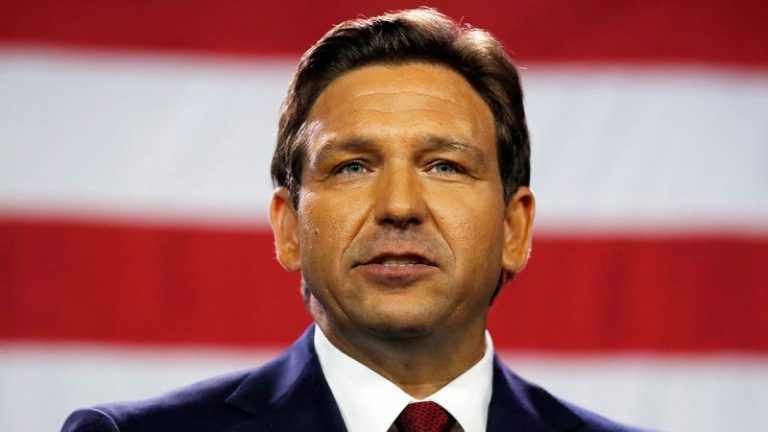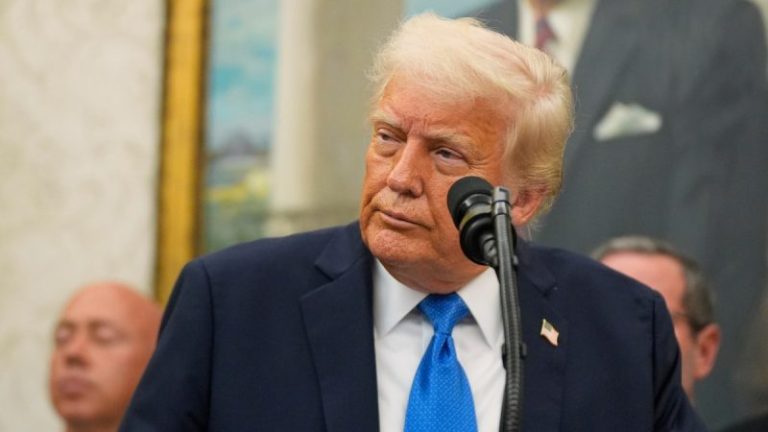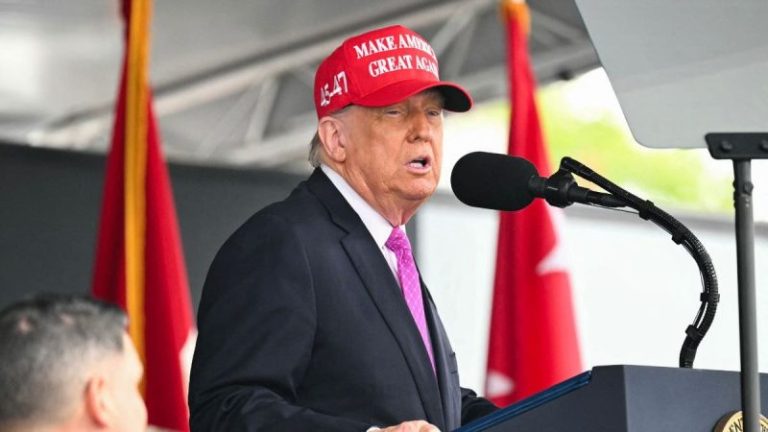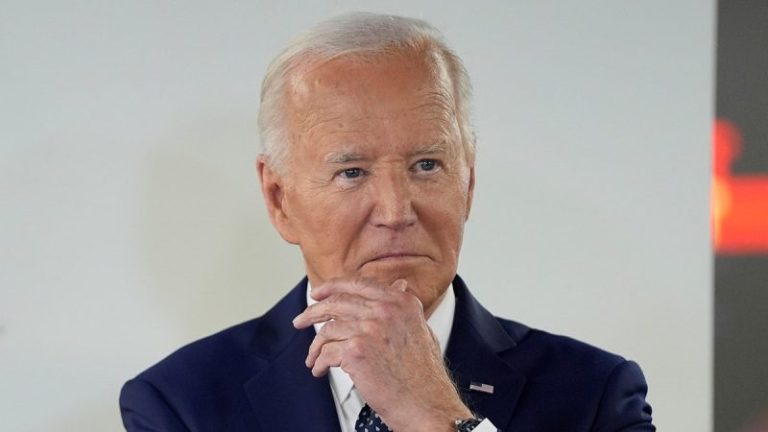The 2028 presidential election seems like a long way away, but in reality, the early moves are already underway by some Democrats with likely national ambitions.
And one Republican politician is already selling 2028 merchandise.
‘Trump 2028’ hats are available for $50 and T-shirts that read, ‘Trump 2028 (Re-write the Rules),’ sell for $36 on the Trump Organization’s website.
But the rules are quite clear: The 22nd Amendment to the U.S. Constitution restricts presidents to two terms in office.
And after months of flirting with running for a third term in the White House, President Donald Trump appears to be ruling out another campaign.
Despite touting strong support in the MAGA world for a 2028 run for re-election, the president in an interview this month on NBC News’ ‘Meet the Press’ said, ‘I’m not looking at that.’
‘I’ll be an eight-year president,’ Trump added. ‘I’ll be a two-term president. I always thought that was very important.’
But Trump’s 2028 flirtations, which he said weren’t a joke, and his sweeping moves since the start of his second tour of duty in the White House are keeping the spotlight firmly on him, averting any lame-duck talk and putting a damper on any early moves by those in the Republican Party hoping to succeed the president.
The race for the next GOP presidential nomination won’t get underway until Trump’s ready to share the spotlight, and he recently said it’s ‘far too early’ to begin holding those discussions.
But Trump also added, ‘I’m looking to have four great years and turn it over to somebody, ideally a great Republican, a great Republican to carry it forward.’
With that in mind, here’s a look at the potential 2028 Republican White House contenders.
Vice President JD Vance
Vice President JD Vance appears to be the heir apparent to the ‘America First’ movement and the Republican Party’s powerful MAGA base. It was a point driven home by Donald Trump Jr., the president’s eldest son, MAGA rockstar and powerful ally of the vice president.
‘We are getting four more years of Trump and then eight years of JD Vance,’ Trump Jr. said on the campaign trail in Ohio a few weeks ahead of the November 2024 election.
As sitting vice president, Vance enjoys plenty of perks that could boost him to frontrunner status. Among them, a large staff that comes with the job, and Air Force Two, which he has repeatedly used to make stops across the U.S. and the globe since the start of the second Trump administration.
And Vance is now finance chair of the Republican National Committee, the first sitting vice president to hold such a position with a national party committee. The posting puts Vance in frequent contact with the GOP’s top donors.
But while Trump has hinted that Vance could be his successor and called him ‘a fantastic, brilliant guy’ in the ‘Meet the Press’ interview, he has avoided anointing his vice president as the party’s next nominee.
Vance has taken no steps toward a 2028 presidential run and isn’t seriously thinking about it at this time, a source in the vice president’s political orbit told Fox News.
‘I really am just not focused on politics,’ Vance said in early April in a ‘Fox and Friends’ interview. ‘I’m not focused on the midterm elections in 2026, much less the presidential election in 2028. When we get to that point, I’ll talk to the president. We’ll figure out what we want to do.’
And the 40-year-old vice president added, ‘The way I think about it is, if we do a good job, the politics take care of themselves.’
Secretary of State Marco Rubio
In his ‘Meet the Press’ interview, besides Vance, Trump also named Secretary of State Marco Rubio as a ‘great’ potential GOP leader.
‘Marco’s doing an outstanding job,’ the president said.
Rubio, a one-time rival who clashed with Trump during the combustible 2016 Republican presidential nomination battle, became a leading Trump ally in the U.S. Senate during the president’s first term in office.
And besides serving as secretary of state, the 53-year-old former senator from Florida is also acting national security advisor, acting head of the National Archives and acting administrator of the U.S. Agency for International Development.
While Rubio’s expanding portfolio in the second Trump administration is fueling speculation about a potential 2028 presidential bid, he still faces skepticism from parts of MAGA world who question his ‘America First’ credentials.
Florida Gov Ron DeSantis
Conservative Florida Gov. Ron DeSantis was flying high after a landslide re-election in 2022, but an unsuccessful 2024 presidential primary run and a bruising battle with Trump knocked him down in stature.
However, the term-limited 46-year-old governor, who has a year and a half left in office steering Florida, proved in the past few years his fundraising prowess and retains plenty of supporters across the country.
DeSantis was also able, to a degree, to repair relations with Trump, helped raise money for the GOP ticket during the general election and earned a prime-time speaking slot at the 2024 Republican convention. And in December 2024, the governor was seen as a possible replacement when now-Defense Secretary Pete Hegseth’s nomination briefly faltered.
While DeSantis is certain to still harbor national ambitions, his feud this year with the Republican-dominated Florida legislature and the controversy over a charity tied to Florida first lady Casey DeSantis are seen as potential hurdles.
Virginia Gov Glenn Youngkin
Thanks to his 2021 gubernatorial victory, the first by a Republican in Virginia in a dozen years, Gov. Glenn Youngkin instantly became a GOP rising star.
In Virginia, governors are limited to one four-year term, which means Youngkin has seven months left in office.
The 58-year-old governor, who hails from the Republican Party’s business wing but has been able to thrive in a MAGA-dominated party, likely harbors national ambitions.
And Youngkin’s trip to Iowa, the state that for a half century has kicked off the GOP’s presidential nominating calendar, in July to headline a state party fundraising gala is sparking 2028 speculation.
Asked in late 2024 in a Fox News Digital interview about a White House run, Youngkin pointed to his job as governor, saying, ‘I need to finish strong so Virginia can really continue to soar. And that’s what I’m going to spend my time on.’
After that, he said, ‘We’ll see what’s next.’
Georgia Gov Brian Kemp
The popular conservative governor is one of the few in the GOP who can claim he faced Trump’s wrath and not only survived, but thrived.
Georgia Gov. Brian Kemp, who is term-limited, has two years left in office and enjoys strong favorable ratings in a crucial battleground state.
Kemp was heavily recruited by national Republicans to run in 2026 to try and flip a Democrat-controlled Senate seat. And the announcement earlier in May by the 61-year-old governor that he would pass on a 2026 Senate run, fueled buzz that Kemp may instead be mulling a 2028 White House run.
Asked in November 2024 about a potential presidential run, Kemp told Fox News Digital, ‘I try to keep all doors open in politics.’
Sen Ted Cruz
Sen. Ted Cruz was the runner-up to Trump in the blockbuster 2016 Republican presidential battle.
The controversial conservative firebrand passed on challenging Trump again in 2024 as he ran for what was thought to be another difficult re-election bid after narrowly surviving his 2018 re-election.
However, the 54-year-old senator ended up winning a third six-year term in the Senate by nearly nine points.
Since the start of Trump’s second administration, Cruz has reaffirmed his conservative credentials by voicing opposition to the president’s controversial tariffs.
Honorable mentions
Among the others to keep an eye on is Nikki Haley.
The former two-term South Carolina governor, who served as U.N. ambassador in Trump’s first term, was the first GOP challenger to jump into the race against the former president in the 2024 nomination race.
Haley outlasted the rest of the field, becoming the final challenger to Trump before ending her White House bid in March 2024.
While the 53-year-old Haley ended up backing Trump in the general election, her earlier clashes with the president during the primaries left their mark. Even though she addressed the GOP faithful at the 2024 convention, her political future in a party dominated by Trump is uncertain.
Also, not to be discounted are three politicians who considered but passed on 2024 runs: Sens. Tom Cotton of Arkansas and Josh Hawley of Missouri and Homeland Security Secretary Kristi Noem.
And besides Haley, we’ll put three other 2024 candidates on the large list of possible 2028 contenders. Businessman Vivek Ramaswamy is the Republican frontrunner in the 2026 campaign for Ohio governor but likely still has strong national ambitions.
Interior Secretary Doug Burgum is a very visible player in Trump’s Cabinet.
And former Vice President Mike Pence, when asked earlier this month by Fox News Digital if he might consider another White House run, reiterated that he intends to ‘be a voice’ for traditional and conservative values and ‘we’ll let the future take care of itself.’
This post appeared first on FOX NEWS










